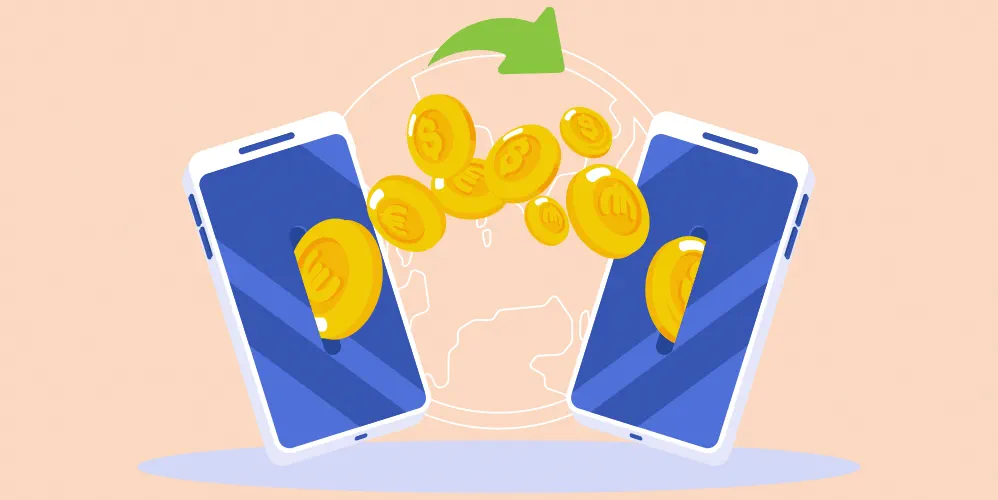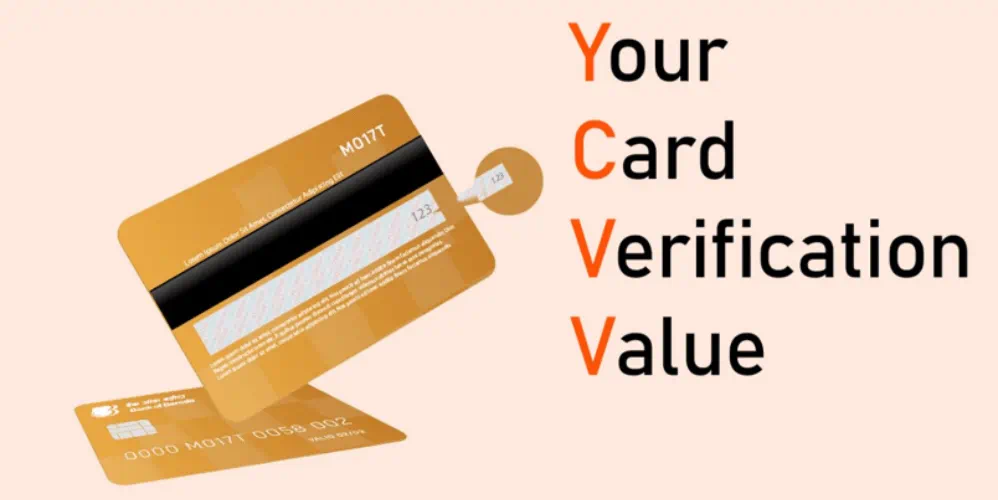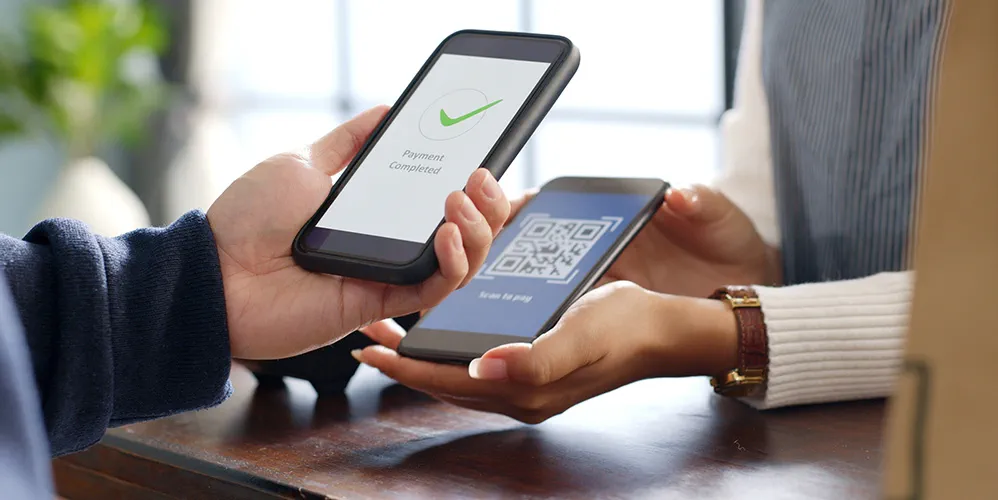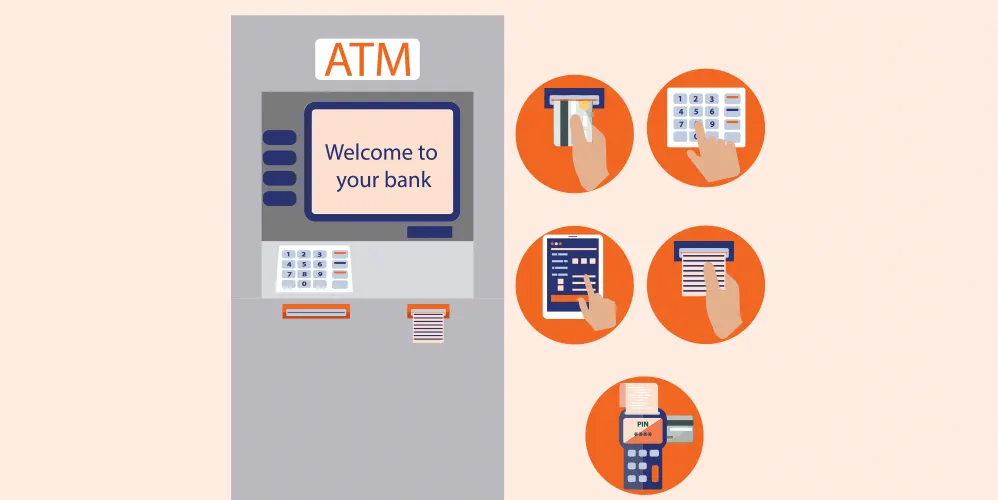
Demystifying RTGS: A Comprehensive Guide to Real-Time Gross Settlement
19 Jun 2024

Table of Content
Introduction
With the advent of technology, banking has gathered momentum closing gaps between time and space. These days fund transfer is no more a matter of grave concern let alone the trepidation of physical presence, security, and much more. With efficient technology, financial security has evolved through Real Time Gross Settlement (RTGS). Banks today have many modes of transferring funds, such as Immediate Payment Service (IMPS), National Electronic Funds Transfer (NEFT), and Real-Time Gross Settlement (RTGS). While the first two are the fastest and most secure modes of transacting small funds, RTGS is a swift and secure way of transferring large funds to another bank.
The world of banking is continuously evolving enabling banking seamlessly for customers. However, with this evolution new products are being added to the banking foyer and customers must be in touch with them to take maximum advantage of the facilities. In this blog, we will help our readers understand what RTGS is and other aspects connected to this service.
What is RTGS?
Real Time Gross Settlement is a system of fund transfer or securities that happens instantaneously. Reducing risks in financial contracts, this payment system is final and irrevocable.
In simple terms, if you want an answer on what RTGS transfer is, it is a continuous settlement of interbank payments based on an individual’s order. This financial system facilitates instant payment between banks. In traditional systems, transactions are mostly netted at the end of the day, RTGS operates on a gross basis.
In a net settlement, multiple parties offset against each other, and only the net amount is settled. This settlement enables efficient use of funds and reduces transaction numbers. But both parties making transactions need to fulfill the transactional obligations to not affect the entire net position.
Settlements of RTGS are made individually in real-time on a gross basis. The full amount of the transaction is transferred from the payer's account to the payee’s bank account immediately. Each transaction is settled instantly eliminating netting risk. High-value time-sensitive transactions can securely be made through RTGS with minimum default and non-settlement. It requires higher liquidity as funds availability is a must in each transaction.
RTGS Transfer Explained
RTGS can be explained as a system where there is continuous real-time settlement of fund transfers, individually or on a transaction-by-transaction basis without netting. We will explain RTGS transfers a bit more elaborately. When we say 'real-time', it means that the instructions are processed at the time they are received. 'Gross settlement' stands for settlement of funds transfer attraction occurring individually. These funds are settled in the books of the Reserve Bank of India(RBI), making the payment final and irrevocable.
Features of RTGS
RTGS transactions are related to high-value payment settlements with the listed features.
Safe transaction: RTGS (Real-Time Gross Settlement) is a secure transaction involving minimum risk of theft and fraud compared to physical instruments like cheques and demand drafts.
No cap on maximum limit: The minimum amount for RTGS transactions is Rs. 2 lakhs, with no maximum limit when conducted at a bank branch. However, for transfers via Internet banking and Mobile Banking, the maximum limit varies between banks. For specific details on transfer limits with Bank of Baroda, please visit the bob World Internet Banking webpage.
Real-time transfer: Ensuring immediate fund transfer is a crucial component of real-time gross settlement. The recipient’s account is efficiently credited upon transaction initiation.
Works on all days of the week: Individuals can transfer funds even on weekends, adding to convenience.
No physical intervention: All physical instruments like cheques or demand drafts are eliminated reducing risk related to physical interactions.
Convenience of internet banking: Individuals can initiate RTGS fund transfers from the comfort of their homes, with specific limits applicable to Retail and Corporate accounts. For detailed information on these limits, please visit the bob World Internet Banking webpage.
Cost-effective: Banks may charge a nominal to no fee for these transactions, with the exact amount varying by bank. The convenience offered by these transactions far outweighs the associated fees.
Legally backed: Recognized by legal bodies, in the real-time gross settlement system, the sense of security is further enhanced as this transaction is protected by law.
Benefits of RTGS
Making modern transactions seamless and hassle-free, real-time gross settlement benefits fund transactions come with a list of advantages.
- The transaction assures safety.
- It offers the convenience of transferring large amounts within certain limits through internet and mobile banking.
- The system is available 24x7x365 with real-time transfer to the beneficiary funds.
- No physical cheque and demand draft are required if done via online mode.
- Beneficiaries need not be apprehensive about loss, as no scope for theft or fraud arises.
- Remitters can initiate this facility from the convenience of their home or office.
- The transactions come with legal protection.
How to do RTGS Transactions?
RTGS (Real-Time Gross Settlement) follows a few steps for the completion of a successful transaction.
The following details are required for an RTGS transaction. The sender must ensure that their accounts have enough funds to make the transfer.
- After logging into the net banking account or mobile app, choose the transfer fund option with RTGS.
- Users will need to add the beneficiary and the recipients’ details.
- Enter the amount if it is higher than Rs. 2 lakhs and complete the transaction.
- The sender account details include the account number, branch, and IFSC code from where the fund is transferred.
- Beneficiary account details, like account number, name, and branch IFSC code is required.
- The amount that will be transferred.
- Purpose of transfer.
Once the necessary information has been furnished, the banks will initiate the transfer to the recipient in real time. Users must double-check and confirm the transaction before going ahead.
How Does RTGS Work
With advancing banking systems and many fund-transferring facilities available, safety has become a crucial concern. RTGS transactions are a combination of swiftness and safety making high-ticket fund transactions so much safer. Here's a glance at how RTGS works.
RTGS transaction initiation: The sender wants to transfer funds of a specific amount, and is looking for a safe system that can use the RTGS system. RTGS transfers can be made from mobile, net banking, or a branch.
Verification and authorization: After verifying the fund availability and sufficiency in the sender's account, the bank authorizes the transaction.
Transmitting the RTGS system: After authorization, the RTGS transaction is initiated from the sender's bank, transmitting the payment instructions to the RTGS system overseen by the Reserve Bank of India (RBI).
RBI processing: The RBI plays a significant role in the transaction settlement by receiving and processing the transaction and ensuring security requirements are met. These settlement accounts of participating banks are maintained by the RBI.
Interbank settlement: The RBI settles both debit and credit from the sender's account to the recipient’s account. With this step, the transaction settlement in real-time and in gross is met individually without netting against the other.
Notification sent to recipient’s bank: A notification is sent to the recipient’s bank account from the central bank(RBI), crediting funds to the recipient’s account.
Confirmation sent to the sender: An instant confirmation is sent to the sender informing that the RTGS transaction has been successfully and safely credited in real-time to the recipient.
Transaction records: Transaction records are maintained by both the sender and recipient bank serving proof of transaction in case of auditing.
Conclusion
Strengthening financial transactions with utmost security this settlement is heightened by the convenience of banking transactions. Real-Time Gross Settlement (RTGS) spearheads modern financial transactions and augments trust and confidence in the fast-evolving online payment landscape.
Popular Articles
Related Articles



What is CVV on a Debit Card? Understanding Its Importance and Security Features


How to Update Your FASTag KYC: Step-by-Step Guide for Online & Offline Methods




The Importance of Pension Funds: Secure Your Future with Steady Retirement Income

-
Disclaimer
The contents of this article/infographic/picture/video are meant solely for information purposes and do not necessarily reflect the views of Bank of Baroda. The contents are generic in nature and for informational purposes only. It is not a substitute for specific advice in your own circumstances. Bank of Baroda and/ or its Affiliates and its subsidiaries make no representation as to the accuracy; completeness or reliability of any information contained herein or otherwise provided and hereby disclaim any liability with regard to the same. The information is subject to updation, completion, revision, verification and amendment and the same may change materially. The information is not intended for distribution or use by any person in any jurisdiction where such distribution or use would be contrary to law or regulation or would subject Bank of Baroda or its affiliates to any licensing or registration requirements. Bank of Baroda shall not be responsible for any direct/indirect loss or liability incurred by the reader for taking any financial decisions based on the contents and information mentioned. Please consult your financial advisor before making any financial decision.
Systematic Withdrawal Plan (SWP) in Mutual Funds: A Guide to Regular Income
A Systematic Withdrawal Plan (SWP) is a financial facility that allows investors to withdraw a fixed amount of money from their mutual fund investment at regular intervals. This feature is particularly beneficial for those seeking a steady income stream, such as retirees or individuals requiring regular cash flow. SWP provides the flexibility to customize withdrawal amounts and frequencies, making it an attractive option for many investors.
Investing in Debt Funds: A Comprehensive Guide for Steady Returns
Financial planning is one of the most crucial aspects of investment and at the same time, an individual needs to understand the various options that are available out there in the market which may further help an individual to make informed decisions. Among the various investment options that are available, debt funds is one of the most popular choices for those who are looking forward to steady returns with lower risk as compared to equity investments. This blog revolves around explaining debt funds, their functioning, features, associated risks and considerations for potential investors.

